What you might not know about the 1964 Civil Rights Act
MLK and Malcolm X met only once? 01:56
Story highlights
- Wednesday marks the 50th anniversary of the signing of the 1964 Civil Rights Act
- "It changed everything about ordinary life for black Americans," says Todd Purdum
- The act holds the record for sparking the longest filibuster in the history of the U.S. Senate
This story was originally published April 10.
(CNN)The
Civil Rights Act of 1964 -- hailed by some as the most important
legislation in American history -- was signed into law 50 years ago
Wednesday.
It was
known as the "bill of the century." But many Americans today probably
couldn't say exactly what the legislation accomplished.
"It's really the law that created modern America," said Todd S. Purdum, author of "An Idea Whose Time Has Come."
"Its goal was to help finish the work of the Civil War, 100 years after
the war had ended, and to make the promise of legal equality for blacks
and whites, even though actual equality is elusive to this day."
The
law revolutionized a country where blacks and whites could not eat
together in public restaurants under Jim Crow laws, or stay at the same
hotel. It outlawed discrimination in public places and facilities and
banned discrimination based on race, gender, religion or national origin
by employers and government agencies. It also encouraged the
desegregation of public schools.
"This
did all of those things. It changed everything about ordinary life for
black Americans all over the country," Purdum said. "I think when you
try to explain to people today -- I have children 10 and 14 years old,
and I don't think they can really imagine a world like (this) existed
before this law."
The act had the longest filibuster in U.S. Senate history,
and after a bloody, long civil rights struggle, the Senate passed the
act 73-27 in July 1964. It became law less than a year after President
John F. Kennedy's assassination.
Here are a few surprising facts about how the Civil Rights Act of 1964 became law:
1. More Republicans voted in favor of the Civil Rights Act than Democrats
In the 1960s, Congress was divided on civil rights issues -- but not necessarily along party lines.
"Most
people don't realize that today at all -- in proportional terms, a far
higher percentage of Republicans voted for this bill than did Democrats,
because of the way the Southerners were divided," said Purdum.
The division was geographic. The Guardian's Harry J. Enten broke down the vote,
showing that more than 80% of Republicans in both houses voted in favor
of the bill, compared with more than 60% of Democrats. When you account
for geography, according to Enten's article, 90% of lawmakers from
states that were in the Union during the Civil War supported the bill
compared with less than 10% of lawmakers from states that were in the
Confederacy.
Enten points out that Democrats still played a key role in getting the law passed.
"It
was also Democrats who helped usher the bill through the House, Senate,
and ultimately a Democratic president who signed it into law," Enten
writes.
2. A fiscal conservative became an unsung hero in helping the Act pass
Ohio's Republican Rep. William McCulloch had a conservative track record -- he opposed foreign and federal education aid and supported gun rights and school prayer.
His district (the same one now represented by House Speaker John
Boehner) had a small African-American population. So he had little to
gain politically by supporting the Civil Rights Act.
Yet he became a critical leader in getting the bill passed.
His ancestors opposed slavery even before the Civil War, and he'd made a deal with Kennedy to see the bill through to passage.
"The Constitution doesn't say that whites alone shall have our most basic rights, but that we all shall have them," McCulloch would say to fellow legislators.
Later,
he would play a key role in the 1965 Voting Rights Act and the 1968
Fair Housing Act and become part of the Kerner Commission, appointed by
the Johnson administration to investigate the 1967 race riots.
Kennedy's widow, Jacqueline Kennedy, wrote him an "emotional" letter when he retired from Congress in 1972.
"You
made a personal commitment to President Kennedy in October 1963,
against all interests of your district," she wrote. "There were so many
opportunities to sabotage the bill, without appearing to do so, but you
never took them. On the contrary, you brought everyone else along with
you."
3. Malcolm X and Martin Luther King Jr. met for the first and only time during Senate debate on the act
The two leaders met briefly on March 26, 1964,
while they were both on Capitol Hill to hear debate on the 1964 Civil
Rights Act. That brief encounter was captured by photographers.
"Well, Malcolm, good to see you," King greeted Malcolm X.
"Good to see you," he replied.
Known
for his direct rhetoric in denouncing America's treatment of
African-Americans, Malcolm X was a stark contrast to King, who preached
tolerance and peace in achieving equal rights.
Some
scholars say the two could have formed an alliance, as Malcolm X moved
away from the Nation of Islam. But it never happened: Malcolm X was
shot and killed less than a year after their first and only encounter.
King was assassinated in 1968.
4. The act didn't help just black Americans
Women,
religious minorities, Latinos and whites also benefited from the Civil
Rights Act, which would later serve as a model for other
anti-discrimination measures passed by Congress, including the Americans
with Disabilities Act and the Pregnancy Discrimination Act.
Under
the Civil Rights Act, women who had been fired because they became
pregnant, or were not hired because they had small children, now had
recourse. As a result of Title VII, "male only" job notices became
illegal for the first time.
Before the Civil Rights Act, women made up less than 3% of attorneys and less than 1% of federal judges; now they make up nearly a third of lawyers, according to the National Jurist, and three of the nine Supreme Court Justices are women.
The
Equal Employment Opportunity Commission was also created by the law,
giving women a workable "hammer" with which to shatter the glass
ceiling.
5. A segregationist congressman's attempt to kill the bill backfired
Virginia's Democratic Rep. Howard W. Smith was a staunch segregationist and strongly opposed the Civil Rights Act.
Smith,
who was chairman of the House Rules Committee, came up with many
tactics to discourage the passage of the bill's Title VII, which would
outlaw employment discrimination because of race, color, religion or
national origin.
When Smith added the word "sex," the House reportedly laughed out loud.
The ploy was Smith's attempt to quash support among the chamber's male
chauvinists on the grounds that the bill would protect women's rights in
the workplace, according to Clay Risen in his book "The Bill of the Century."
Despite
resistance, and complex motives, the act eventually passed, laying the
groundwork for legal battles to ensure equal employment opportunities
for women.
And whether he intended to or not, Smith ended up helping to set the stage for modern feminism.
6. The 1964 law didn't do much to address discrimination at the ballot box
Black
men were granted the right to vote in 1870 under the 15th Amendment
(women followed 50 years later). Yet many obstacles -- including
literacy tests and poll taxes -- prevented most blacks in the South from
casting ballots.
Just a few
months before the Voting Rights Act, the 24th Amendment to the U.S.
Constitution was ratified to remove poll taxes as a condition for voting
in federal elections. All the 1964 Civil Rights Act did was to mandate
the same voting rules nationwide.
It wasn't until the following year that the 1965 Voting Rights Act would suspend the use of literacy tests.
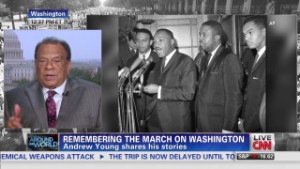

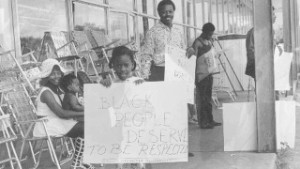
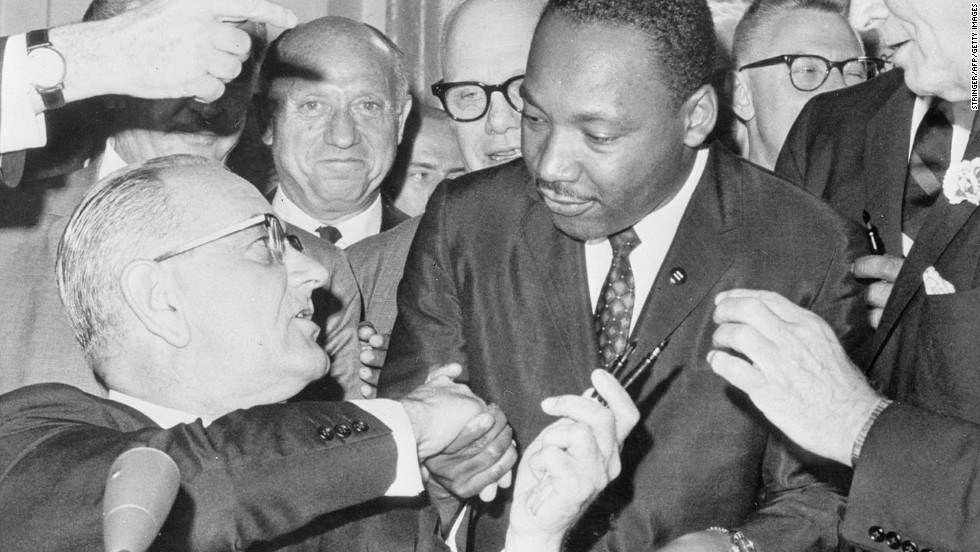


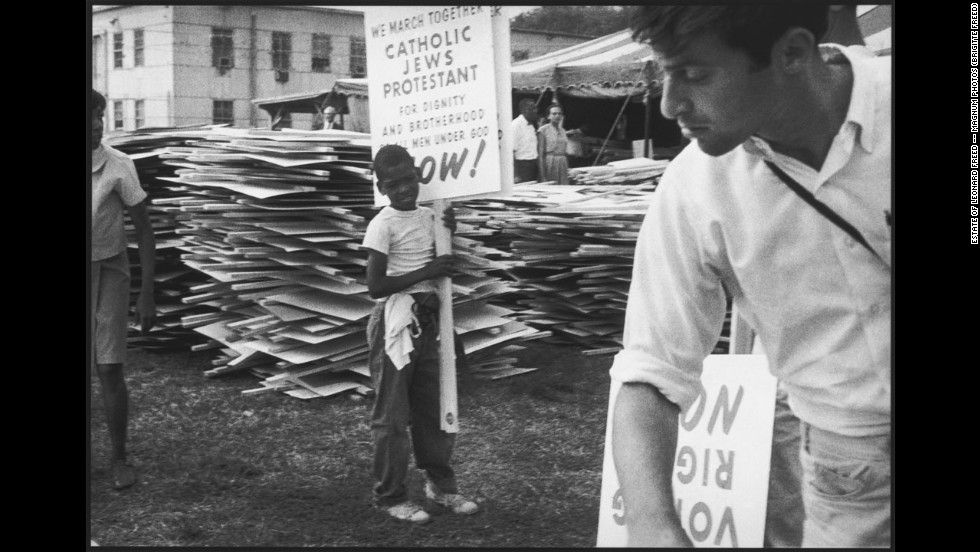









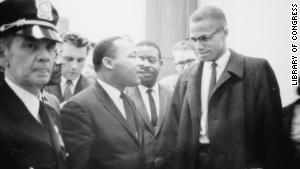

No comments:
Post a Comment